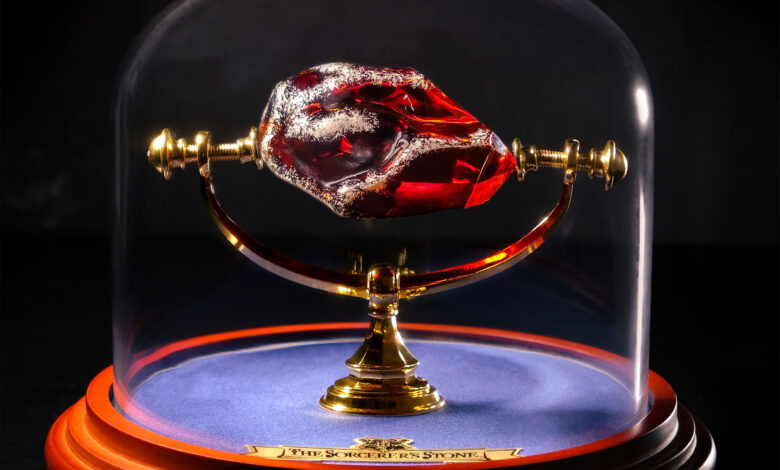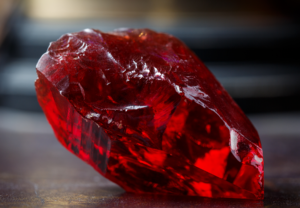Harry Potter Philosopher’s Stone 101 facts

Harry Potter universe, the Philosopher’s Stone story is a magical object with extraordinary powers. It is a legendary alchemical substance created by Nicolas Flamel, a famous alchemist. Here’s what the Philosopher’s Stone can do:
Produce the Elixir of Life
 A Gateway to Immortality
A Gateway to Immortality
The Philosopher’s Stone is intrinsically linked to the concept of longevity in the Harry Potter universe. Through its ability to produce the Elixir of Life, the stone offers an escape from the natural constraints of aging and mortality, making it one of the most sought-after magical artifacts in history.
How the Philosopher’s Stone Prolongs Life
The stone’s connection to longevity lies in its unique ability to create the Elixir of Life, a magical potion that halts the aging process. As long as the potion is consumed regularly, the drinker can live indefinitely, free from the effects of time and disease. This makes the Philosopher’s Stone not just an object of alchemical wonder but also a source of eternal youth and vitality.
Nicolas Flamel: A Living Example of Longevity
 Flamel’s Extended Lifespan
Flamel’s Extended Lifespan
In the Harry Potter series, Nicolas Flamel, the creator of the Philosopher’s Stone, exemplifies the stone’s ability to bestow longevity. Flamel and his wife, Perenelle, lived for over 600 years, sustained by the Elixir of Life. Their prolonged lifespans highlight the extraordinary power of the stone while also raising questions about the consequences of such an existence.
Flamel’s Decision to Let Go
At the end of Harry Potter and the Philosopher’s Stone, Flamel makes the profound decision to destroy the stone, ending his and his wife’s extended lives. This act underscores the narrative’s deeper theme: the acceptance of mortality as a natural and necessary part of life.
Longevity in the Context of Immortality
While the Philosopher’s Stone can prolong life, it does not make the drinker invulnerable. Death by external causes, such as injury or murder, remains possible. This limitation highlights the difference between immortality and invulnerability, reminding readers that even extended life has boundaries.
The Ethical and Philosophical Questions of Longevity
The Philosopher’s Stone’s ability to extend life brings with it profound ethical dilemmas. It challenges characters and readers alike to consider:
- The cost of living forever: Is immortality worth the potential loneliness and detachment from the natural cycle of life and death?
- The dangers of misuse: In the wrong hands, such power could lead to greed and the disruption of balance in the magical world.
By associating the Philosopher’s Stone with longevity, J.K. Rowling invites readers to explore the complex interplay between the desire for life and the acceptance of its inevitable end. The story ultimately suggests that true fulfillment comes not from avoiding death but from embracing life’s fleeting beauty.
Who Can Use the Philosopher’s Stone?
The Philosopher’s Stone in the Harry Potter universe is a highly powerful and mysterious magical artifact. Its use is not restricted to any particular type of witch or wizard, but it comes with specific practical and moral considerations.
Access to the Philosopher’s Stone
The Philosopher’s Stone can, in theory, be used by any individual who gains possession of it. Its powers—such as creating the Elixir of Life and transmuting metals into gold—do not appear to require any specialized magical abilities. However, in practice, certain factors influence who can effectively use or benefit from the stone.
Alchemical Knowledge
The Philosopher’s Stone is a product of alchemy, an ancient magical and philosophical discipline. While anyone can theoretically use its powers, understanding its creation or its full potential may require deep knowledge of alchemy. Nicolas Flamel, the stone’s creator, is an alchemist who dedicated his life to mastering this complex art.
Moral and Ethical Integrity
Possession of the Philosopher’s Stone demands a high level of responsibility. Its power to grant immortality and infinite wealth could corrupt individuals who lack ethical grounding. This is evident in the series, where Albus Dumbledore and Nicolas Flamel decide to destroy the stone to prevent it from falling into the wrong hands, such as Voldemort.
Specific Examples in Harry Potter
Nicolas Flamel
As the stone’s creator, Nicolas Flamel is its primary and most famous user. He and his wife, Perenelle, used the stone responsibly to sustain their extended lives through the Elixir of Life.
Voldemort’s Attempt
In Harry Potter and the Philosopher’s Stone, Voldemort seeks the stone to create the Elixir of Life and regain his physical form. This demonstrates that even a dark wizard can theoretically use the stone, though his intentions underscore the potential for misuse.
Harry Potter and Friends
While Harry, Hermione, and Ron protect the Philosopher’s Stone in the story, they do not use its powers. Their actions focus on preventing Voldemort from gaining access to the stone, emphasizing its role as a moral and philosophical symbol rather than a tool for personal gain.
Limitations on Use
While anyone can theoretically use the Philosopher’s Stone, its powers are finite. For example, the Elixir of Life must be consumed regularly to maintain immortality, creating a dependency on the stone. Additionally, the destruction of the stone at the end of the first book highlights that even such a powerful object is not invincible.
Philosophical Implications
The Philosopher’s Stone is a tool of immense power, but its use comes with moral and practical consequences. It challenges the user to weigh their ambitions against the potential for corruption, making it not just an artifact of power but a test of character. In the Harry Potter series, its fate reflects the story’s overarching themes of selflessness, acceptance, and the responsible use of power.
How to Use the Philosopher’s Stone in the Harry Potter Universe
The Philosopher’s Stone is a legendary magical artifact with two extraordinary powers: creating the Elixir of Life and turning base metals into gold. While the series doesn’t provide detailed instructions, its abilities and uses are explored enough to understand its significance.
Creating the Elixir of Life
The Philosopher’s Stone is the key to producing the Elixir of Life, a potion that grants immortality. Here’s how it works:
- Prepare the Potion
The Elixir of Life is brewed using the Philosopher’s Stone. While the exact recipe is unknown, it likely requires advanced alchemical and potion-making skills. - Consume the Elixir Regularly
Drinking the Elixir halts aging and ensures immortality. However, its effects are temporary, meaning the potion must be consumed periodically. - Dependence on the Stone
The user needs the Philosopher’s Stone to keep producing the potion, making its existence essential for continued immortality.
Turning Metals Into Gold
The Philosopher’s Stone can also transmute any base metal into pure gold. This process is simpler:
- Apply the Stone to the Metal
Contact between the Philosopher’s Stone and a base metal, like lead, transforms it into gold. - No Special Preparation Needed
Unlike potion-making, this act doesn’t require additional tools or spells. - Symbolic Meaning
In alchemy, this transmutation represents the pursuit of spiritual and material perfection.
Who Can Use the Philosopher’s Stone?
Anyone in possession of the Philosopher’s Stone can use its powers. It doesn’t require specific spells or skills to activate, though deep knowledge of alchemy and potions can enhance its effective use.
Challenges and Risks
Using the Philosopher’s Stone comes with significant challenges:
- Moral Responsibility: Its immense powers, if misused, could lead to greed and corruption.
- Reliance on the Stone: Immortality through the Elixir creates a dependency, as the potion’s effects wear off over time.
- Threat of Misuse: The stone’s power can attract dangerous individuals, as seen with Voldemort’s attempt to obtain it.
The Philosopher’s Stone as a Symbol
In Harry Potter and the Philosopher’s Stone, the artifact represents more than its powers. It symbolizes ultimate ambition, the balance of morality, and the acceptance of mortality. The decision by Nicolas Flamel and Dumbledore to destroy the stone highlights the importance of responsibility, selflessness, and embracing life’s natural end.




